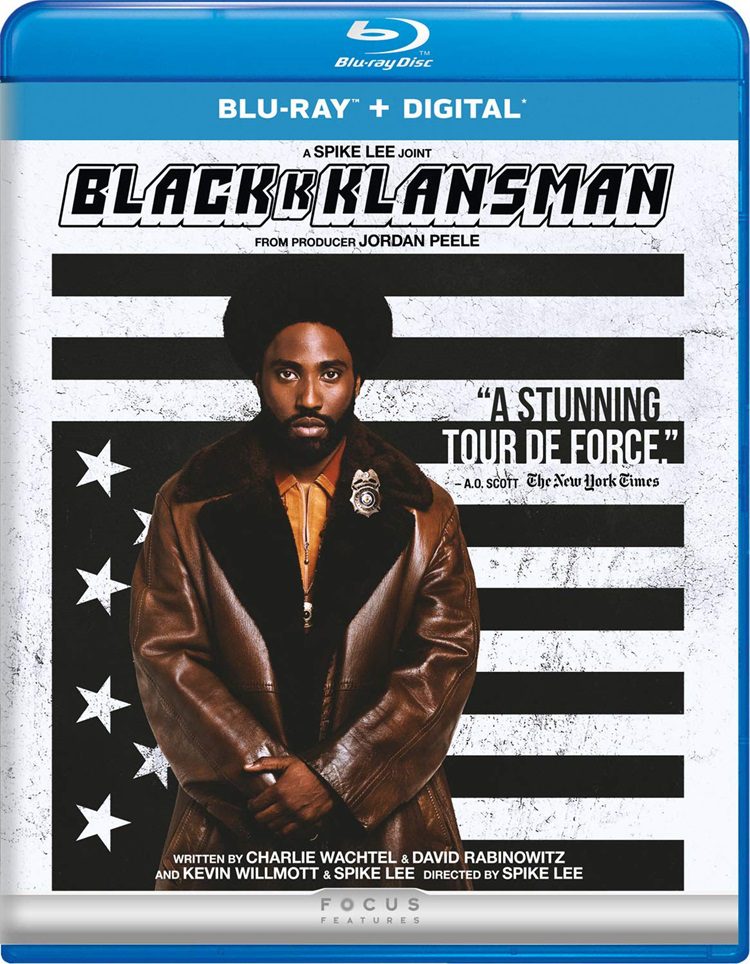
The best way to describe Spike Lee’s latest joint, BlacKkKlansman, is that it is haunting, humorous, and thought provoking in equal measure. It works as an acerbic buddy comedy that delves into the horrors of white supremacy which is still prevalent in today’s society. BlacKkKlansman may be based on a true story, yet it also feels like a documentation of the bigotry that the Trump presidency is currently demonstrating and not just because it features footage of last year’s Charlottesville riots.
BlacKkKlansman is based on the story of Ron Stallworth (John David Washington), the first African-American detective to serve in the Colorado Springs Department. Despite being a rookie, he decided to immediately embark on a dangerous mission: to infiltrate the Ku Klux Klan and thwart their plan to assassinate a group of Black Student Union activists. Aiding Stallworth is Flip Zimmerman (Adam Driver), a Jewish policeman who assumes Stallworth’s identity in order for Stallworth to gain the Klan’s trust.
When the film first opens, there’s a video with Alec Baldwin as Dr. Kennebrew Beauregard, a racist who spews rhetoric that is hateful and nonsensical. Even though he has only one scene, he still serves as an embodiment of the personalities that the Ku Klux Klan members who are introduced later in the film possess. The men in the Klan are portrayed as gullible because they don’t notice that they’re communicating with the real Stallworth over the phone while Zimmerman is posing as Stallworth. As a result, their idiocy is used as a comedic device. However, they’re still lethal simply because they choose to commit hateful crimes.
As for John David Washington (son of Denzel) as our main hero, he gives quite a breakthrough performance. He brilliantly portrays a man who feels caught between two worlds. On one hand, he is working for the police force that is oppressing the African-American community. On the other, he goes undercover in the Black Student Union, a group of activists looking to fight against the corrupt forces oppressing them. In fact, Ron goes deep into the BSU to the point where he falls for its president, Patrice (Laura Harrier).
But because this film is about a duo, credit should go to other half of the duo as well. Adam Driver is a perfect scene partner to Washington as Flip. Driver manages to act as a comedic straight man while providing the right dramatic beats by reacting to the events around him in a subtle manner. There are even small moments that give us an idea of what kind of person Flip is like a scene where he expresses his uncertainty over his Jewish religion. Scenes like that show how Flip is someone who’s willing to do his job and stop hate but is still nonchalant about it. Although, his demeanor that is too collected draws a bit of ire out of Ron who is flabbergasted at how Flip and his fellow police officers don’t express visible anger over the ongoing plight of black citizens.
In hindsight, that small scene is the one that hit me the hardest. There are longer scenes that have a razor-sharp effect. For example, there’s a harrowing, well-edited sequence that cuts back and forth between Klansmen laughing while watching The Birth Of A Nation and an elderly black activist (Harry Belafonte) telling the BSA about a black teen who was publicly lynched.
However, the aforementioned small confrontation between Ron and his fellow policemen had a sharp effect as well. Mainly because it involves the forces that Ron is working alongside with and shows that even they can’t seem to look past their own bubble of privilege. It’s either because they don’t want to believe little has changed or due to ignorance because it doesn’t affect them personally. Well, little has changed and while we may have heard that phrase ad nauseum, it still needs to be heard.
In these dark times, we do need films like Won’t You Be My Neighbor? to remind us to choose kindness over hatred. Yet, we also need films like BlacKkKlansman to showcase how horrific human beings can be so that we don’t demonstrate the same type of behavior and so that we find a way to take a stand against prejudice and hate.